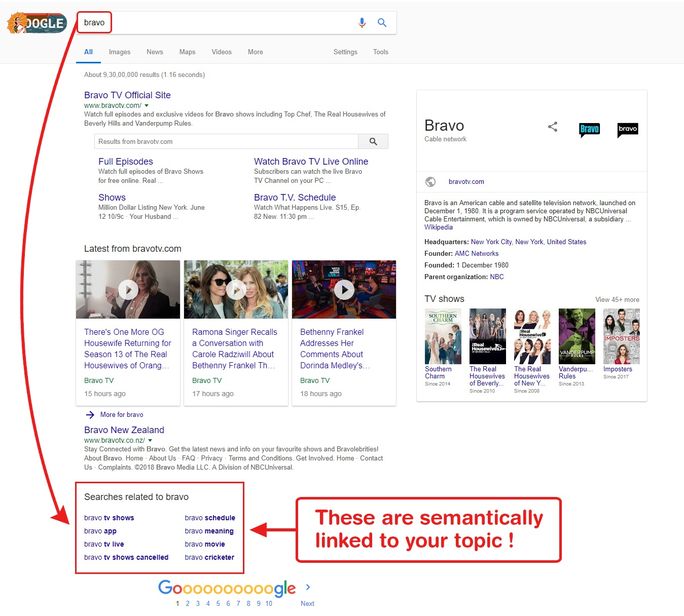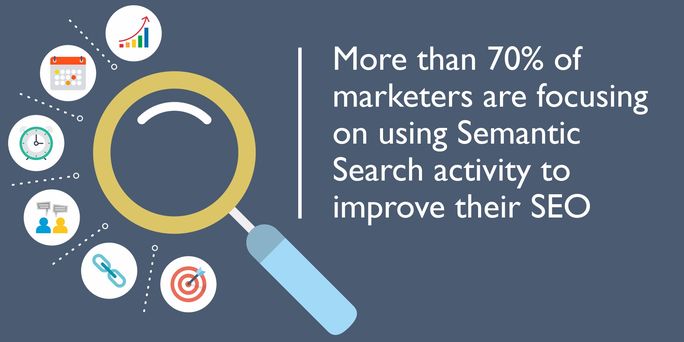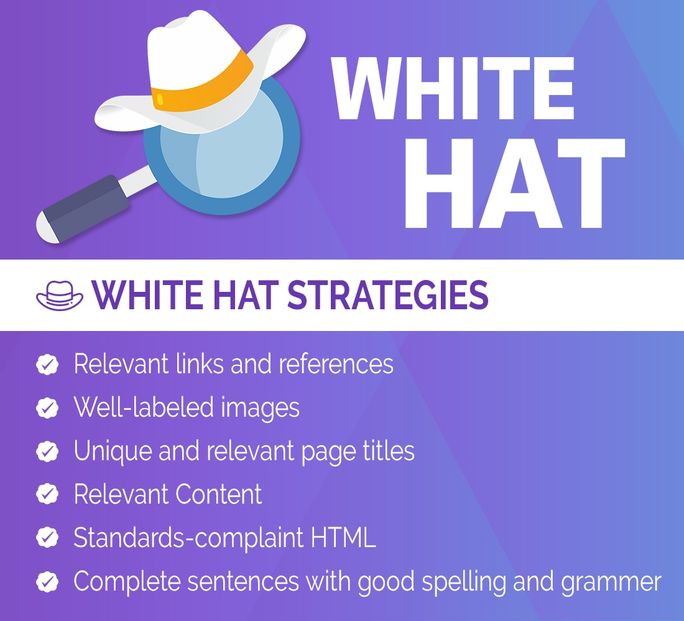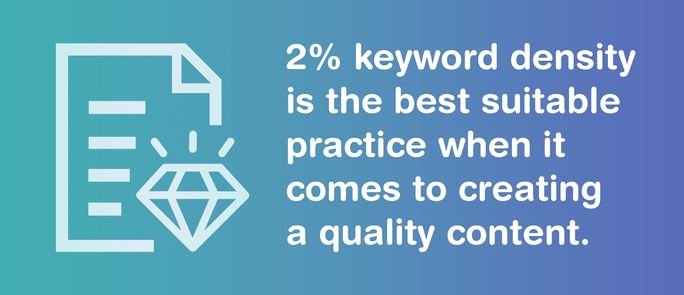Today, search engines are putting emphasis on semantic search and no longer prioritizing the use of keywords. Here we shall delve into the benefits of semantically enhanced browsing. Find out how this technology benefits your online business.

What is Semantic Search?
In simple words…
As content creators and business marketers, we need to pay attention to all the ways that Google continues to improve search.
In fact,
Enriching your content with semantic search is a way of buffering your data with more meaning. That means the prospects can discover your information quickly on the World Wide Web. This technique is transforming how digital marketing should be conducted. So, there is no reason for you not to seek the exceptional benefits of this approach.
Say for example:
Let’s see what google replies when we write “Bravo” in the search box.

You can see in the image that when the Bravo is searched in Google, it gives us many options. The image shows the result – Bravo (cable network), but when you scroll down the page, there is a list of other suggestions from google like bravo tv show, bravo meaning, bravo cricketer, etc.
These search suggestions are called as semantic search.
You can try it by yourself. Type the word in google search bar and see what you get!
But, now the question is: what exactly is semantic search? And why it’s important?
Well, semantic search is an activity that generates meaningful outcomes even when the retrieved element doesn’t have a grey term or query text.
Google can relate things in the exact way human beings perceive them, therefore, boosts the accuracy of a search because it understands the intentions of the internet users as well as the contextual meanings of the words and phrases used.

2018 is the year of unlocking the true value of semantic search. This system puts into account a number of factors before providing the end results.
Such points include the intention, context, location, synonyms, natural language questions, concept matching, and word variations. The implementation of semantic technology provides greater value to e-commerce websites, so the results are more geared towards the objective of the internet user as opposed to being limited by their technical barriers.
How does it help people to find your business online?
You already know that Google is the answer engine. Everyone seems to be looking for answers from this unique tool. Following Google’s move towards semantic search and relevancy is a modification for search engine optimization.
Moreover,

There is a Google Voice Search, when it’s rather spoken than typed words. In case you don’t know the SEO meaning, allow us to explain in a lay man’s language.
It is the process of ensuring that a web page is found on Google or any other search engine for the words related to the site. A lot of entrepreneurs need to be enlightened on the semantic approach and how to edit their Google knowledge graph.
If you take a close look at semantically related keywords in Google, you will discover that the context matches with the natural language use.
One important thing though: the visibility of such content is expanded. Those who utilize machine learning for analyses of texts, classification, SEO optimisation software and other keyword concepts have a lot to gain from the semantic search.
Through semantically optimised results, Google results provide better spectacles of data that give the seeker a superior glimpse of the website content before the click on the URL. Rich snippets, in conjunction with Google’s Knowledge Graph visibility, help users to make educated choices.
But,
If you’re looking for the benefits of using Semantic Search, below are the summed up the advantages of a semantic approach to the business marketing:
1. Enhanced user experience
A semantic approach eliminates redundancy when it comes to the choice of words. It is a way of obtaining relevant search traffic. By improving the user experience, your website metrics, such as the time on site and the number of views will gradually start going up.
2. Makes easier to find answers
A semantic relations offer interactive and conversational-based SERPs. Rather than tracking information by keyword match, people find answers based on concepts. This technique ensures that a prospect is not disappointed after arriving where the SERPs suggest.
3. Improved business intelligence
Semantically enriched metadata increases the visibility of a site. At the end of the day, information retrieval turns out to be a worthwhile process.
4. Building customer relations
The use of semantic keywords helps businesses to establish stronger relationships with their clients. If you have a basic database consist of the semantic keywords, it’s a big advantage for creating the blog or the website.
Isn’t this what you need to grow your venture?
Well, it might be, but don’t you want to know, how to make the most of Semantic Search?
How to make the most of semantic search?
There is no philosopher’s stone to reaping the benefits of semantic technology, but some of the tweaks used by SEO experts to get the most from the semantic search are the same as below.
1. Use SEO techniques
You should be ethical when using SEO techniques on your website in order to auger well on Google, Bing, Yahoo, etc.

By applying the white hat techniques, you can double traffic on your website. Consequently, your web pages would get to the top-ranking positions on Google.
2. Semantic markup
When adding a semantic markup to a different page on the website, select the nearest paradigms where your website page fits well.
3. Understand potential clients
When leveraging in semantics, you have to understand your target market properly. This will assist in answering their concerns, and so your website will offer content that achieves the optimal success.
4. Know the intricacies of Google
The guidelines occasionally provided by Google are always clear and straightforward. To attain greater traffic, it is good to take in and follow what Google realizes in achieving SEO. Indeed, you should install the latest Google algorithm with assured success.
5. Shape content through semantic systems
To avoid the never-ending problems that marketers usually face and reach the apex of internet results, stay away from crash programs. These are programs that can leave both you and your potential customers with nothing at hand.
These are some of the frustrations that most content marketers today cannot stand. It is imperative to produce genuine content in order to attract target audience to your online business.
The good thing is, there are many search engines that manipulate their own algorithms to favor intent and relevance. This means that link manipulation and keyword stuffing are well prevented.
Next detailed explanation on development of Semantic Search will help you get a clear idea!
Development of Semantic Search
To improve semantic techniques, there have been tireless investments by Google and the other available search engines like Yahoo and Bing to streamline the seeking process.
Actually,
Some entrepreneurs have been using black hat SEO tactics to achieve remarkable rankings. But the game is changing. Search engines have to scan the content and determine whether it can address the question of the searcher, even before bringing out the results on the visual display. EduBirdie writing here is one of those sites that understand its concept.
This development is indeed a game changer for digital marketers. They can finally shift their focus to more important things like publishing quality materials. They no longer need to worry about keyword stuffing, and all they can hope for is substantial ranking.
So, what could be more satisfying than being assured of your prospects’ trust and that your site will always beat your competitors’?
But, things that will help improve your website is through proper implementation of semantic search.
Want to know how?
Here are some of the best practices of using it!
Best practices for using semantic search
Don’t over-rely on keywords
SEO optimization software takes care of keywords. But to produce logic content, your keywords need to carry useful information.
That way, you can publish shareable and compelling content. As much as keywords are fundamental, they have to be used naturally without compromising the quality of your content.

In fact,
If you need help with the most popular long-trail of words on search engines, then you should consult such tools as Google Keyword Planner. Here, you will find a string of prompts that users occasionally type on search engines.
However,
This doesn’t mean you should over-rely on such tools when building new content. But it is a great starting point for you to delve deep into your niche.
Be specific with the information on your blog space
Your articles must address the most important questions. Be very specific when providing knowledge. By addressing the questions of your audience directly, you will be making their lives better, and so they will always want to come back for more.
If you have a marketing team, talk to them concerning the commonly asked questions by clients. Use this information on your blogs to enhance the experience of the readers. Form your marketing team; there is a wealth of data you can leverage on.
However,
For instance, you should use the issues raised by past clients to create online materials. If you are keen, you should have already noted that the customer queries tend to revolve around the same issues. In the end, you will want to change your prospects into buyers.
The Final Call!
The semantic world is a spectacular platform for exploring and modelling relationships. Start by understanding how the concept works, and the way search engine algorithms utilize it, and then leverage on it.
So, does your site have a strong semantic structure? Well, if not, using these best practices will help you get great visibility and open the opportunities for more business growth in future!
If you have any questions or want to share your perspective, do let us know in the comment section below.




